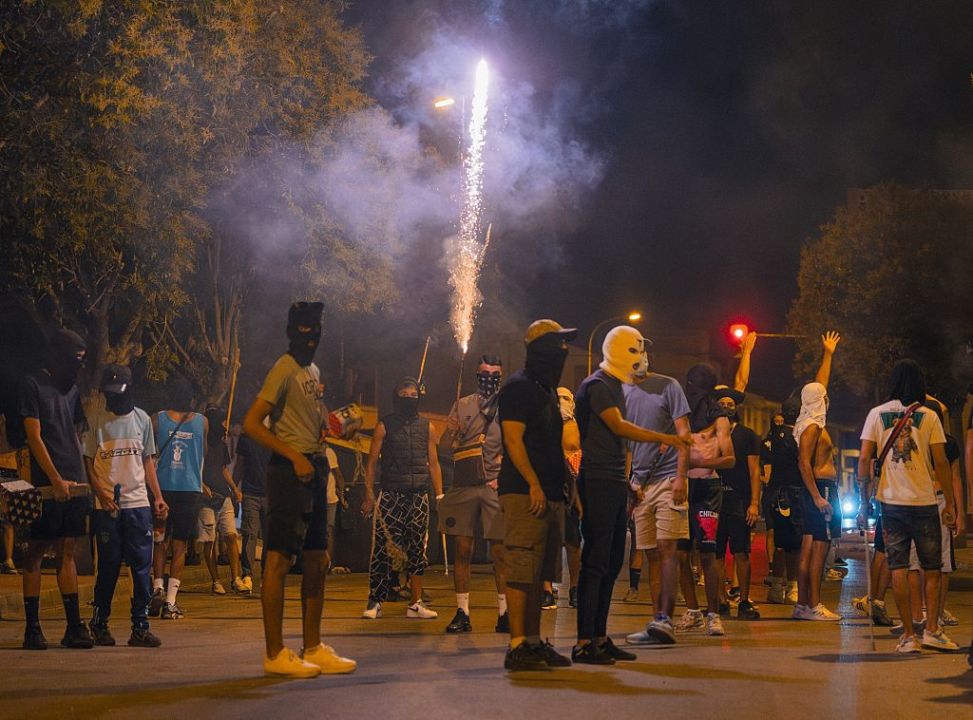‘Spain is and will be forever the land of Christian people’. These are not, as you might think, the words of a marauding conquistador, but of a spokesperson for Spain’s right wing Vox party. They were posted on X this week, in response to a ban on Muslim religious celebrations in the southeastern town of Jumilla.
It is the first prohibition of its kind in Spain. It was proposed by Jumilla’s Conservative administration and passed with Vox’s (surprising) abstention. It bans the use of municipal facilities such as sports halls for ‘religious, cultural or social activities alien to our identity unless organised by the local authority’. This senseless legislation means that the 7.5 per cent of Jumilla’s 27,000 citizens who come from Muslim countries will no longer be able to publicly celebrate Islam’s two main festivals – Eid al-Fitr, which marks the end of Ramadan in March, and Eid al-Adha, the Feast of Sacrifice, held in early June.
Jumilla’s ban is a knee-jerk reaction to anti-migrant riots in Torre-Pacheco, a town 70 miles to the south, in which approximately 18 per cent of the 35,000 residents are of African origin. On 9 July, a local pensioner was allegedly beaten up by three Moroccan men, prompting two nights of violent protests. Locals armed with baseball bats reportedly took to the streets, responding to calls on social media by right wing groups to target North African migrants. A kebab shop was vandalised and 14 people were arrested.
Reacting to the riots in Torre-Pacheco and Jumilla’s ban on Muslim celebrations, Mounir Benjelloun Andaloussi Azhari, president of the Spanish Federation of Islamic Organisations, said he was ‘rather surprised by what’s happening in Spain. For the first time in 30 years I feel afraid’. Azhari accused Jumilla’s government of ‘going after’ Muslims and called the ban ‘Islamophobic and discriminatory’.
The prohibition deserves condemnation – and rapid repeal – for several reasons. First, it is almost certainly unconstitutional. According to Article 16 of the Spanish Constitution, ‘freedom of ideology, religion and worship of individuals and communities is guaranteed, with no other restriction on their expression than may be necessary to maintain public order’. The same section also states that ‘no religion [in Spain] shall have a state character’ and that ‘public authorities shall take into account the religious beliefs of Spanish society’. Although 56.1 per cent of Spaniards identify as Catholic, Catholicism is not Spain’s official religion. Spain has no state religion; rather, it is committed to the protection of religious plurality.
Secondly, the prohibition panders to the violent racism seen on the streets of Torre-Pacheco. Instead of sending a message of solidarity to Spanish Muslims after those disturbing events, Jumilla’s administration has chosen to make them feel even more unwelcome. This would be deplorable in any democracy; but it is especially sad to see in a country whose history is defined by centuries of harmonious co-existence between Jews, Christians and Muslims.
Which brings us to the third and most serious criticism of Jumilla’s ban – that it relies on an indefensible notion of national identity. As Juana Guardiola, a former Socialist mayor of Jumilla, has rightly asked, ‘What do they mean by identity? And what about the centuries of Muslim legacy here?’
Guardiola refers to a period of Spanish history that lasted from the early-eighth to late fifteenth centuries. For almost eight hundred years, Al Andaluz, as Islamic Spain was known, thrived under Muslim rule. In the tenth and eleventh centuries, administered by the powerful Caliphate of Cordoba, it was the intellectual capital of the West – a centre of pioneering advances in medicine, philosophy and science. Jews, Christians and Muslims collaborated to make Al Andaluz the most dynamic and progressive country in medieval Europe.
The legacy of this remarkable era is visible all over Spain, especially in the southern region of Andalusia – from Granada’s Arabic markets and Alhambra fortress, to Cordoba’s Mezquita-Catedral, a medieval Mosque with a Renaissance Catholic nave at its centre. Jumilla itself, as Yumil-la, was under Islamic rule from the early 700s until the mid 1200s, when Christian forces seized control (to anyone wanting to know more about this fascinating period, I highly recommend Maria Rosa Menocal’s Ornament of the World: How Muslims, Jews and Christians Created a Culture of Tolerance in Medieval Spain).
The baying thugs who roamed the streets of Torre-Pacheco last month are not representative of Spain’s modern identity; nor is the local government that wants to keep Muslims behind closed doors. Spain is, and will forever be, a land of many religions, defined by its rich Islamic, Jewish and Christian heritages. Anything else is disinformation.








Comments